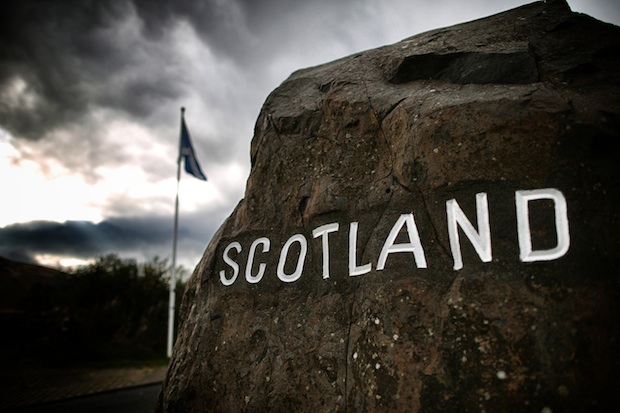Why, in the final few days of campaigning, are both sides in the Scottish independence referendum becoming obsessed with bullying and media bias? Shouldn’t they use their valuable airtime making the case for the Union, or for independence, or rebutting claims by the other side about the NHS?
Today Alistair Darling said that ‘Scotland will not be bullied’, while Alistair Carmichael alleged that the pushing and jostling was directed at ‘No’ campaigners rather than ‘Yes, saying:
‘If there is bullying here – and clearly there is – and now quite a serious atmosphere where people who are supporting a ‘no’ vote don’t feel comfortable in saying so publicly…’
Alex Salmond didn’t like this, arguing instead that the campaign had been ‘perfectly civilised’ and ‘to suggest anything else is to demean the people of Scotland’. But he did want to demean the media, who he again accused of an anti-independence bias. He said there was a ‘real public concern, in terms of some of the nature and balance of the coverage’ and that the Treasury’s briefing to the BBC about RBS’ announcement that it would move its head office in the event of independence was ‘worthy of journalistic inquiry’.
Why bother talking about idiots who turn up to events and jostle when the leaders are debating the issues, or annoying journalists? The answer is that the debate about bullying and bias helps both sides enormously.
Accusing ‘Yes’ campaigners of bullying is important for the ‘No’ campaign, as what information we do have about wavering voters suggests that they are put off a message by perceived aggression. There is a key line in Carmichael’s interview with the BBC, which is ‘where people who are supporting a ‘no’ vote don’t feel comfortable in saying so publicly’. This isn’t just a reference to the hope that the Better Together campaigners hold onto that there are more ‘No’ voters than the pollsters can find because those voters are still nervous of declaring their intention to anyone. It’s also a way of reassuring those secret ‘No’ voters that they are not alone.
As for Salmond continuing to chip away at the BBC, this not only galvanises his own camp by appealing to the persecution complex that all insurgent parties share but also appeals to the voters who are turning to ‘Yes’ because they are angry with the Establishment. The BBC and mainstream media can fit quite comfortably into that definition of Establishment, and so Salmond can crank up the anger by getting very cross about an off-the-record briefing.







Comments